shape digital change
become part of the megatrend
We provide support for internships, starting a job in a company, or setting up your own business

Technologies & Processes for tomorrow's business model
#digitalisation #informatics #businessadministration #informationtechnology #databases #informationandcommunicationsystems #artificialintelligence
#programming #itmanagement #softwareengineering #datascience #operationsresearch #bigdata #businessapplications #dataprocessing
#softwareengineering #businessintelligence #cloudcomputing #ebusiness #digitaltransformation #entrepreneurship #businessmodels
Digitalisation and the rapid developments in the field of artificial intelligence have fuelled a disruption in the economic sector in recent years that has perhaps not been seen since the Industrial Revolution. Completely new business models have emerged and, in many areas, IT has changed from a supporter to an essential part of the value chain. The development towards a data-driven company - often referred to as digital transformation - opens up many opportunities for companies here, but also harbours many risks. The key in the process of this digital transformation is that the merging of the information-processing processes (IT) and the business processes into a new unit succeeds as quickly and smoothly as possible. This is precisely where the strength of business informatics lies, which is why it has gained so much importance in recent years.
Whereas business informatics used to stand for the loose coupling of supporting IT and business, today it is the central bracket and the link that enables many companies to create something out of IT and business that is more than just the sum of the parts. These new tasks in business informatics also pose new challenges for the people involved. The aim of this degree programme is to deepen your knowledge at the decisive points and thus optimally prepare you for precisely this range of activities. The degree programme is designed to support you in becoming an active designer in this extremely exciting and promising professional field - regardless of whether you are interested in the development of new systems, the operation and expansion of existing systems or the consulting of companies.
fact sheet business informatics
Degree: Master of Science (M.Sc.)
Duration : 3 semesters / part-time 6 semesters (18 months / 3 years)
ECTS points: 90
Start: October & March (winter and summer semester)
Location: Deggendorf
Taught in: German
Application period:
- Entry in October (winter semester): 15 April - 15 July
- Entry in March (summer semester): 01 October - 28 February
Admission requirements :
- Admission is defined in the study and examination regulations. (§ 3 Qualification requirements)
- The choice between full-time and part-time is made during enrolment
- Language requirements
- Selection interview in the form of an oral assessment (for winter semester 2025/26 on 29 July 2025) , which might not take place if the final grade is 2.5 or better.
Fees:
- No tuition fees, only student union fee
- International students from non-EU/EEA countries are required to pay service fees for each semester. Click here to read about our service fees.
Contact:
- Information about the programme content: wi-m-info@th-deg.de
- General info on studying at DIT: prospective student advisors
career prospects
Business informatics is the catalyst and the link that enables many companies to create real synergies from IT and business.
This degree programme enables you to work precisely at this interface, whether as a
- Software engineer in the development of new systems
- Consultant in a consulting firm
- Employee in central IT for the operation of (cloud) systems
- Responsible for the development and operation of new data-driven business models
subject overview
Overview of lectures and courses, SWS (Semesterwochenstunden = weekly hours/semester) and ECTS (European Credit Transfer and Accumulation System) in the Master's degree Business Informatics.
The degree program can be studied full-time or part-time. On the part-time course, lectures take place on Friday/Saturday. On the full-time course, lectures are held from Wednesday to Saturday.
subject overview in full-time study mode (start in Winter semester)
| 1. Semester | SWS | ECTS |
| Current Topics in Business Informatics | 4 | 5 |
| Data Science | 4 | 5 |
| Business Intelligence | 4 | 5 |
| AI and Theoretical Computer Science | 4 | 5 |
| Digital Business Models and Entrepreneurship | 4 | 5 |
| Advanced Software Engineering | 4 | 5 |
| 2. Semester | ||
| Applied Operations Research | 4 | 5 |
| Digital Forensics and Analysis | 4 | 5 |
| Cyber Security | 4 | 5 |
| Management and IT-Consulting | 4 | 5 |
| Cloud Computing | 4 | 5 |
| Ethics | 2 | 2,5 |
| IT Law | 2 | 2,5 |
| 3. Semester | ||
| Colloquium | 5 | |
| Master Thesis | 25 |
subject overview in full-time study mode (start in summer semester)
| 1. Semester | SWS | ECTS |
| Applied Operations Research | 4 | 5 |
| Digital Forensics and Analysis | 4 | 5 |
| Cyber Security | 4 | 5 |
| Management and IT-Consulting | 4 | 5 |
| Cloud Computing | 4 | 5 |
| Ethics | 2 | 2,5 |
| IT Law | 2 | 2,5 |
| 2. Semester | ||
| Current Topics in Business Informatics | 4 | 5 |
| Data Science | 4 | 5 |
| Business Intelligence | 4 | 5 |
| AI and Theoretical Computer Science | 4 | 5 |
| Digital Business Models and Entrepreneurship | 4 | 5 |
| Advanced Software Engineering | 4 | 5 |
| 3. Semester | ||
| Colloquium | 5 | |
| Master Thesis | 25 |
subject overview in part-time study mode (start in Winter semester / odd years)
| 1. Semester | SWS | ECTS |
| Current Topics in Business Informatics | 4 | 5 |
| Data Science | 4 | 5 |
| Business Intelligence | 4 | 5 |
| 2. Semester | ||
| Applied Operations Research | 4 | 5 |
| Digital Forensics and Analysis | 4 | 5 |
| Cybersecurity | 4 | 5 |
| 3. Semester | ||
| AI and Theoretical Computer Science | 4 | 5 |
| Digital Business Models and Entrepreneurship | 4 | 5 |
| Advanced Software Engineering | 4 | 5 |
| 4. Semester | ||
| Management and IT-Consulting | 4 | 5 |
| Cloud Computing | 4 | 5 |
| Ethics | 2 | 2,5 |
| IT Law | 2 | 2,5 |
| 5./6. Semester | ||
| Colloquium | 5 | |
| Master Thesis | 25 |
subject overview in part-time study mode (start in summer semester / odd years)
| 1. Semester | SWS | ECTS |
| Cloud Computing | 4 | 5 |
| Ethics | 2 | 2,5 |
| IT Law | 2 | 2,5 |
| Management and IT-Consulting | 4 | 5 |
| 2. Semester | ||
| Current Topics in Business Informatics | 4 | 5 |
| Data Science | 4 | 5 |
| Business Intelligence | 4 | 5 |
| 3. Semester | ||
| Applied Operations Research | 4 | 5 |
| Digital Forensics and Analysis | 4 | 5 |
| Cyber Security | 4 | 5 |
| 4. Semester | ||
| AI and Theoretical Computer Science | 4 | 5 |
| Digital Business Models and Entrepreneurship | 4 | 5 |
| Advanced Software Engineering | 4 | 5 |
| 5./6. Semester | ||
| Colloquium | 5 | |
| Master Thesis | 25 |
subject overview in part-time study mode (start in summer semester / even years)
| 1. Semester | SWS | ECTS |
| AI and Theoretical Computer Science | 4 | 5 |
| Digital Business Models and Entrepreneurship | 4 | 5 |
| Advanced Software Engineering | 4 | 5 |
| 2. Semester | ||
| Cloud Computing | 4 | 5 |
| Ethics | 2 | 2,5 |
| IT Law | 2 | 2,5 |
| Management and IT-Consulting | 4 | 5 |
| 3. Semester | ||
| Current Topics in Business Informatics | 4 | 5 |
| Data Science | 4 | 5 |
| Business Intelligence | 4 | 5 |
| 4. Semester | ||
| Applied Operations Research | 4 | 5 |
| Digital Forensics and Analysis | 4 | 5 |
| Cyber Security | 4 | 5 |
| 5./6. Semester | ||
| Colloquium | 5 | |
| Master Thesis | 25 |
subject overview in part-time study mode (start in summer semester / even years)
| 1. Semester | SWS | ECTS |
| Applied Operations Research | 4 | 5 |
| Digital Forensics and Analysis | 4 | 5 |
| Cyber Security | 4 | 5 |
| 2. Semester | ||
| AI and Theoretical Computer Science | 4 | 5 |
| Digital Business Models and Entrepreneurship | 4 | 5 |
| Advanced Software Engineering | 4 | 5 |
| 3. Semester | ||
| Management and IT-Consulting | 4 | 5 |
| Cloud Computing | 4 | 5 |
| Ethics | 2 | 2,5 |
| IT Law | 2 | 2,5 |
| 4. Semester | ||
| Current Topics in Business Informatics | 4 | 5 |
| Data Science | 4 | 5 |
| Business Intelligence | 4 | 5 |
| 5./6. Semester | ||
| Colloquium | 5 | |
| Master Thesis | 25 |




